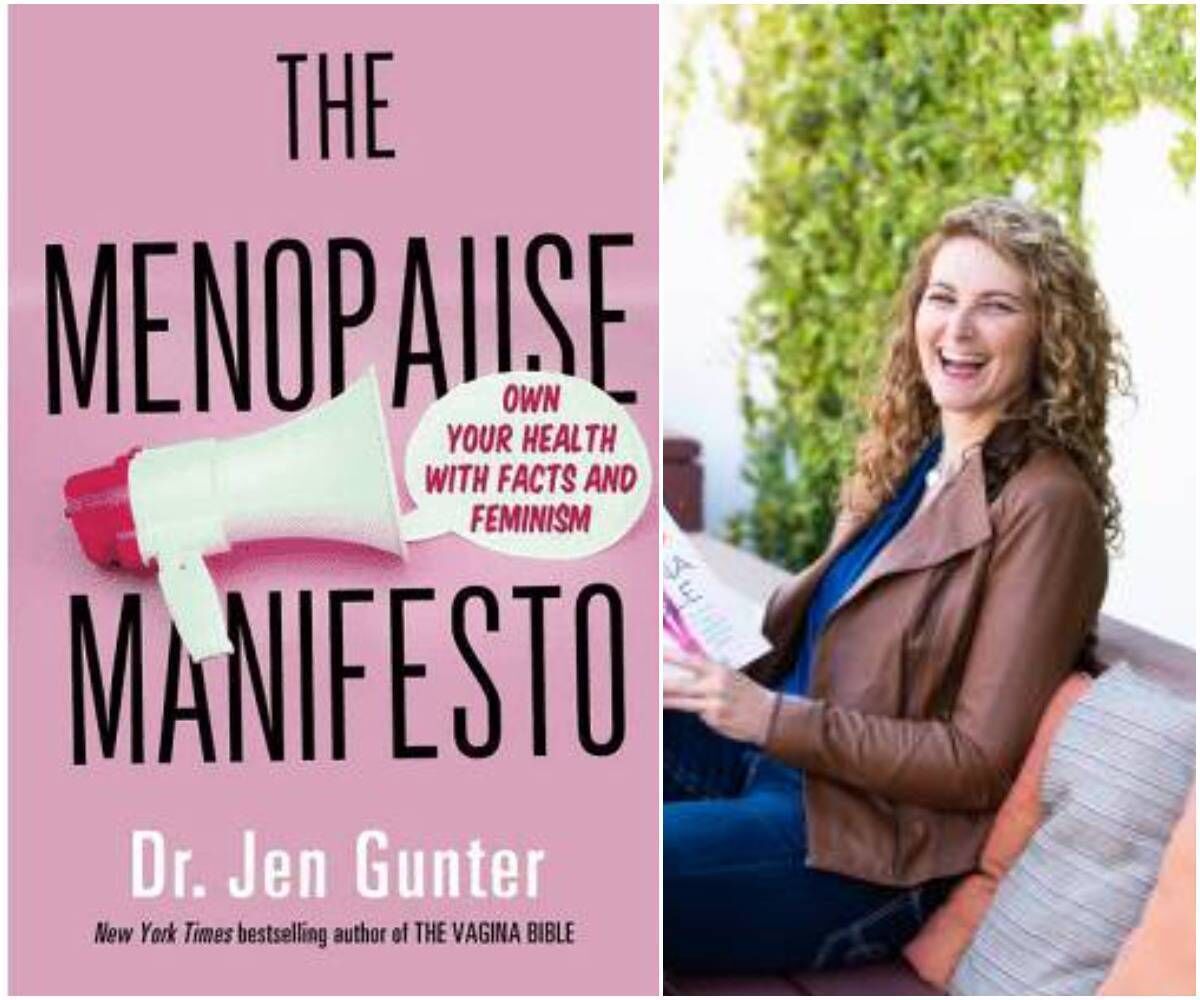The Menopause Manifesto: Get to know the facts to help you take control

'I want to tell women that menopause is not a sign of irrelevance, it is not the end, it is a phase of life.' Picture: iStock
According to Dr Jen Gunter, there is no greater act of feminism than speaking up about a menopausal body in a patriarchal society. To hammer the point home, the cover of her latest book, features a megaphone — and Gunter most certainly isn’t afraid to wield this particular metaphorical device, whether it is on social media, her column in or in her Amazon Prime series, , which highlights the impact of medical misinformation on women.
Given that most women will spend one-third, or even one-half, of their lives post-menopausal, it is not a topic that is much discussed. When it is mentioned, it is often with a negative or demeaning overtone. Gunter, a gynaecologist, obstetrician, and best-selling author of , has been at the forefront of efforts to change this perspective. Speaking to me from her home in San Francisco, I tell her about the recent revelatory airing of women’s experience around the menopause on RTÉ's Liveline programme. Is the taboo on the subject lifting? Gunter is wary but optimistic.
“I think it is just starting to. We are just seeing it, barely. But you know what, you have got to start somewhere, so that's great.”
Gunter’s book is framed by a world where women’s bodies are weaponised based on reproductive function, and menopause is seen as the end of a woman’s worth in society.
“Men get distinguished and women get diminished, right? You see a 60-year-old movie star and a 30-year-old actress is too old to play his wife? Like, come on. I want to tell women that menopause is not a sign of irrelevance, it is not the end, it is a phase of life and like a lot of biological phases of life, there can be health ramifications.”
For Gunter, when it comes to the menopause and all the confusing and sometimes scary symptoms that it can bring with it, knowledge is most definitely power.
“I just want women to have all the data they need so they can keep living for many years in their best of health,” she says.
When it comes to the role that hormone replacement therapy (HRT) — or menopausal hormone therapy (MHT) as Gunter prefers to call it — she says anyone considering it needs to have their individual risk factors assessed by a doctor.
“What I would say is that for somebody who is at low risk for complications, someone who is otherwise healthy, isn’t at exceedingly high risk for breast cancer or has uncontrolled heart disease, for the majority of people MHT is a very safe option.
Every treatment has risks. The risks with MHT are very low — if you are using a trans-dermal product [via a patch applied on the skin] you are talking about, after four to five years, six cases of breast cancer per 10,000 women per year.”
The findings of the Women’s Health Initiative trials in 2002, which linked HRT to an increased breast cancer risk, had profound consequences in terms of prescribing hormone treatment, which still impact today. According to Gunter, the frightening headlines generated in the media did not help women.
“Women were made to be terrified about breast cancer. Then what happens, you have all these great drugs for osteoporosis, then they terrify women about the rare side-effects of those. What are people supposed to do then? Just crumble away to nothing? It is always amazing to me that the media never covers the side effects of chemotherapy. To me, what that tells me is that having cancer is worth treating, that having a complication of menopause is not worth treating.”

The list of health issues relating to the menopause is long, from hot flushes and joint pain to vaginal atrophy and palpitations. However, Gunter says it also important to remember that not every health problem that arises during middle age is due to the menopause.
“There are a lot of changes happening around the time of menopause. It is like your whole system is rebooting. Could that trigger certain symptoms? Sure. But the problem is that in your 40s or 50s you can start accumulating medical conditions and that can be hard to sort out. That being said, if somebody is super low-risk and they have this weird new symptom and you make sure there is nothing wrong, you can do a trial of three months of MHT, it is as low-risk a trial of medication as there can possibly be. It will either make a difference or it won’t. It is not a tattoo — you can just stop it.”
The psychological symptoms of peri-menopause can be very distressing for women, but once again, Gunter cautions against hormone therapy as a cure-all.
“Not all depression in the menopause transition is related to hormones. If someone is scoring really high on a depression scale, the initial treatment wouldn’t be just hormones. There is never anything wrong with trying anti-depressants and MHT at the same time, as well, but I want to make sure the message gets out there that you shouldn’t just be looking at menopause for depression.
Having been through the menopausal transition herself, Gunter is well aware of the other pressures faced by women at this often challenging period in their lives, when they could be juggling a young family, work, household and caring for older relatives.
“When I started going through menopause, my kids were in middle school, which is one of the trickiest times — one of my sons came out as gay and got bullied at school, so you have all this additional stress on top of everything. Your kids might be leaving home, you’ve been with the same partner for 25 years and all of a sudden you are looking at them and thinking ‘hmmm’. It is important to not think of menopause as the only paint on your canvas.”
Taking care of yourself amidst all of this is difficult, acknowledges Gunter, but she says the benefits of diet and exercise during the menopausal transition cannot be over-emphasised.
“In terms of things like quitting smoking, eating healthily and getting exercise, multiple studies looking at women in menopause find that the majority of them are not doing those things. Again, when we only focus on MHT, we are neglecting the fact that the healthiest thing you can do for your body is exercise. You will get more use from that than from any pill or patch. "
Often we think in terms of black and white, like, ‘well I’m not running 10K, so what’s the point?’ But any movement, how can you get outside for 10 minutes a day, is beneficial. Also, sleep is probably one of the most important factors. If you are sleeping better, that will be good for your mood, and people are less likely to overeat when they are not tired, so you may see a lot of downstream ramifications that way.
"It is important to look at everything you can do to make your menopausal transition and menopause healthier.”
The Menopause Manifesto, by Dr Jen Gunter, published by Piatkus, is out now.





